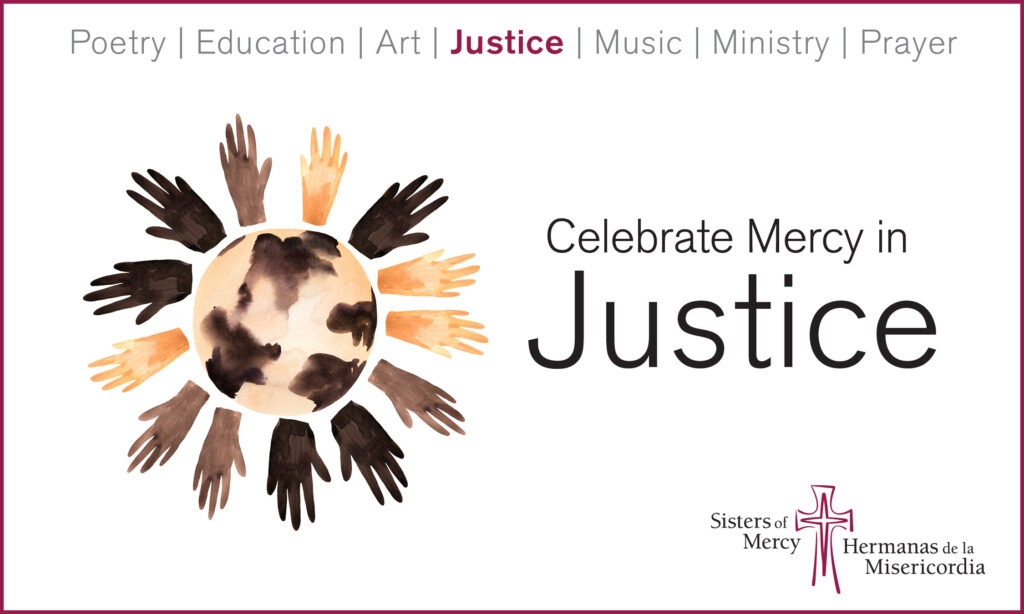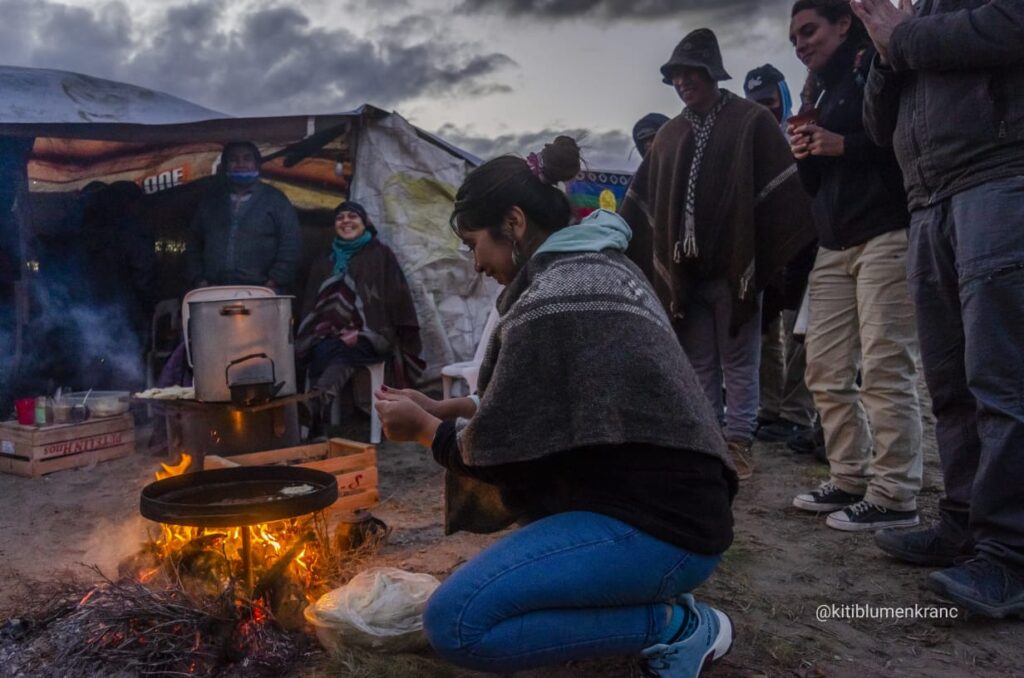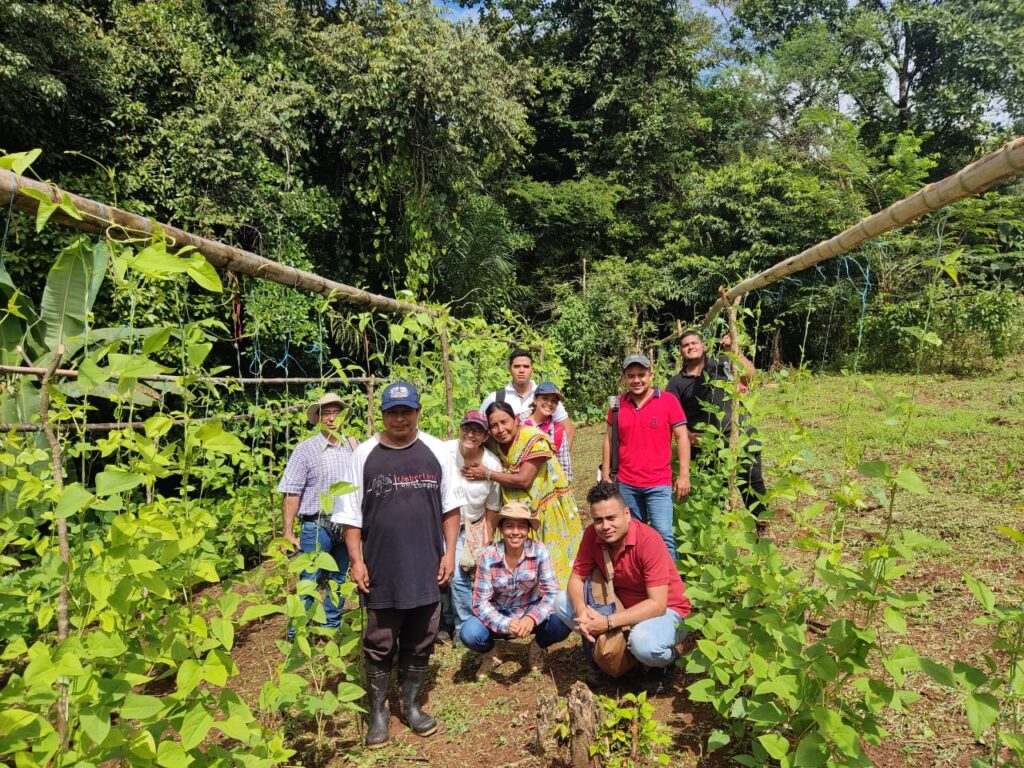On September 24, we will celebrate the 195th anniversary of the day Catherine McAuley opened the doors of the House of Mercy on Baggot Street. This began her ministry of serving the poor, the sick, and those in need of education. Beginning on September 17, we will “Celebrate Mercy” in history, poetry, education, art, justice, music, ministry, and prayer through reflections written by sisters.

Resisting: The Road Toward Environmental Justice
By Sister Ana María Siufi
A few months ago, I moved to a small town called Loncopué, in the beautiful Andean mountain range of the Argentine Patagonia. It is a peasant area with several Mapuche communities, the original people of the region, who have resisted colonization for centuries.
Ten years ago, 80% of the population voted “No” in a referendum to prevent a Chinese mining company from exploiting the copper (there would also be gold) under the mountains. This resistance to extractivism was supported by the clear rejection of the mining project by the Mapuche community directly affected by it, and also by the parish priest and a group of activists who undertook a great deal of education, outreach and protests against the evils caused by mega-mining.
Last June, to keep the memory of the struggle alive, we celebrated that popular victory, which is reminiscent of the triumph of David over Goliath. There were several events, including talks, a puppet show and a Mapuche water ritual.
I also partook in the Winoy Wipantu, or New Year celebration, that the Mapuche community held on the 24th of that month, which is when it is recognized in the southern hemisphere. The Birth of the Sun ritual began on the night of the 23rd with the lighting of four bonfires, tended by firekeepers. Before dawn, with snow falling, we gathered on the banks of the Agrio river for the purification, which involved four young people taking a dip in the water while the rest of us wet our feet or hands. During the celebration, which lasted 12 hours under persistent snowfall, there were prayers in the Mapuche language (Mapudungun), blessings, songs, dances, circular marches, seed planting and a shared meal for about 75 people.
Despite being cold and tired, I enjoyed the strong sense of community and well-distributed roles, the loving connection with Mother Earth, the respect for their traditions and the effort to restore and preserve their identity, so threatened since colonization.

This is one more example of the native peoples being faithful guardians of Mother Earth, because they devote themselves to the struggle to recover their stolen lands and to protect the aquifers, forests and mountains despite being slandered, repressed, expelled, persecuted by the law and sometimes murdered with impunity.
The Mapuche people tirelessly resist a government policy of abandonment, as well as stigmatization by the media whose disinformation labels them as terrorists, invaders, unpatriotic, etc., for their actions of resistance to extractivism and their pursuit of socio-environmental justice. This anti-Mapuche, anti-environmentalist campaign is encouraged and financed by landowners, real estate companies, and mining and hydrocarbon multinationals, with the complicity of the provincial and national government. Their aim is to keep control of the best lands and aquifers and to deforest and pollute, unchecked, for their own profit.
Right now I am very gratefully discovering that my mission here is to humbly learn, to educate others by rejecting this campaign that deceitfully turns victims into victimizers, and to spread the truth and defend the territory so coveted by the powerful. I also believe that, if Catherine McAuley were alive today, with her merciful heart she would know on which side to stand: listening to the earth and the poor crying out, supporting the caretakers of Mother Earth and serving those made most vulnerable by this extractivist economy that destroys life.
May the Spirit that fills everything and sustains life give us its light and fire and make us loving daughters of Mother Earth. May we be merciful to every being and courageous builders of brotherhood and peace. Amen.
Contemplative Reflection—Give Them to Eat!
By Sister Edia Del Carmen López
Taking on the responsibility of our Institute’s 2017 Recommitment Statement has given me the opportunity to defend life, especially that of the women and children who suffer violence and systemic poverty. I feel called to live taking risks and focused on God, for whom “we move forward or stay back,” as our own Catherine McAuley would say. We join Pope Francis’ call in his encyclical Laudato Si’, where he reiterates that caring for creation is intimately related to promoting a better choice for the poor and those who have the least. These are the most harmed by ecological degradation (paragraph 158). Urgent action is needed to address the climate emergency and to save lives, post-pandemic, and livelihoods.
I have undertaken a new ministry to promote a deeper consciousness about our responsibility for Mother Earth, to rescue the existence of a responsible reciprocal relationship between us and nature, along with a sense of responsibility toward others and the world. We are working with families resisting climate change in the area where I live in Panama, and in an Indigenous area, promoting family-based agriculture with an agro-ecological vision.

We believe that it is an extremely important step in the process of training families to produce food in more friendly ways, carrying out concrete actions such as cultivating gardens in homes and schools and consuming healthier food, connecting food with a sustainable model and establishing a more sustainable community. Other steps we are taking include exchanging knowledge, seeds, caring for the forest, the waters, etc., and meeting with our neighbors to share knowledge and alternatives while educating one another. This path can be of help to us to rebuild life, hope and Mother Earth in these poor communities during the present crisis.
I feel that God accompanies us on our journey and speeds us along so that we might urgently live up to the words of Catherine McAuley, which she would repeat today: “The poor need help today, not tomorrow.” And, as Jesus, the Master of Love would tell us: “Give them to eat” … (Matthew 14: 13-21). The disciples show him that they only have five loaves of bread and two fishes. But it doesn’t matter, even a little is enough when it is shared with generosity.
Hunger is too serious a problem for us to distance ourselves from one another, and leave each person to get by as best they can in their own village. This is not the time to pull apart, but to unite more than ever, so we can share what we have among us all, without excluding anyone. Those who were about to leave, to satiate their hunger, in their own village, sat down with Jesus to share what little they had. This is how Jesus wants to see the human community. It is how Catherine wants to see us. I believe that she understood it very well during her lifetime and made Mercy possible in the time that she was given to live.
When we hear this command, “Give them to eat,” what should move within our hearts? Where are we, who follow Jesus?